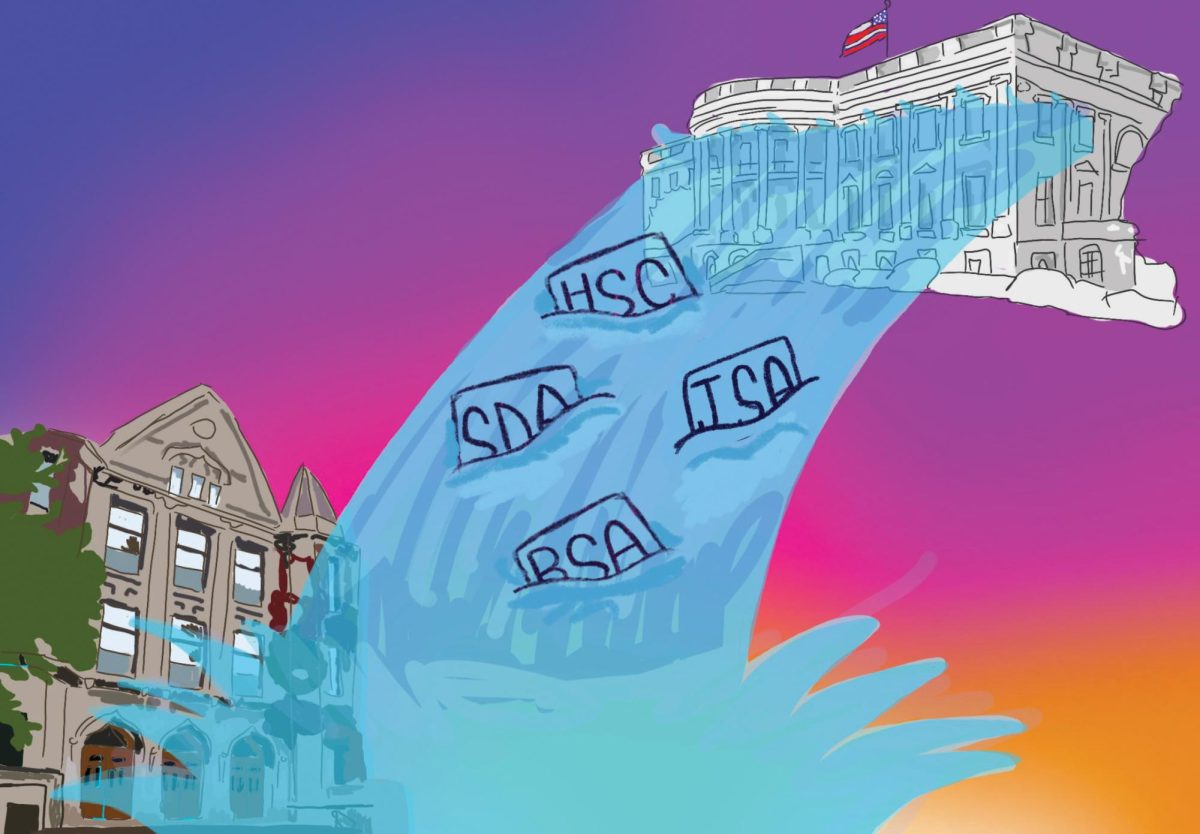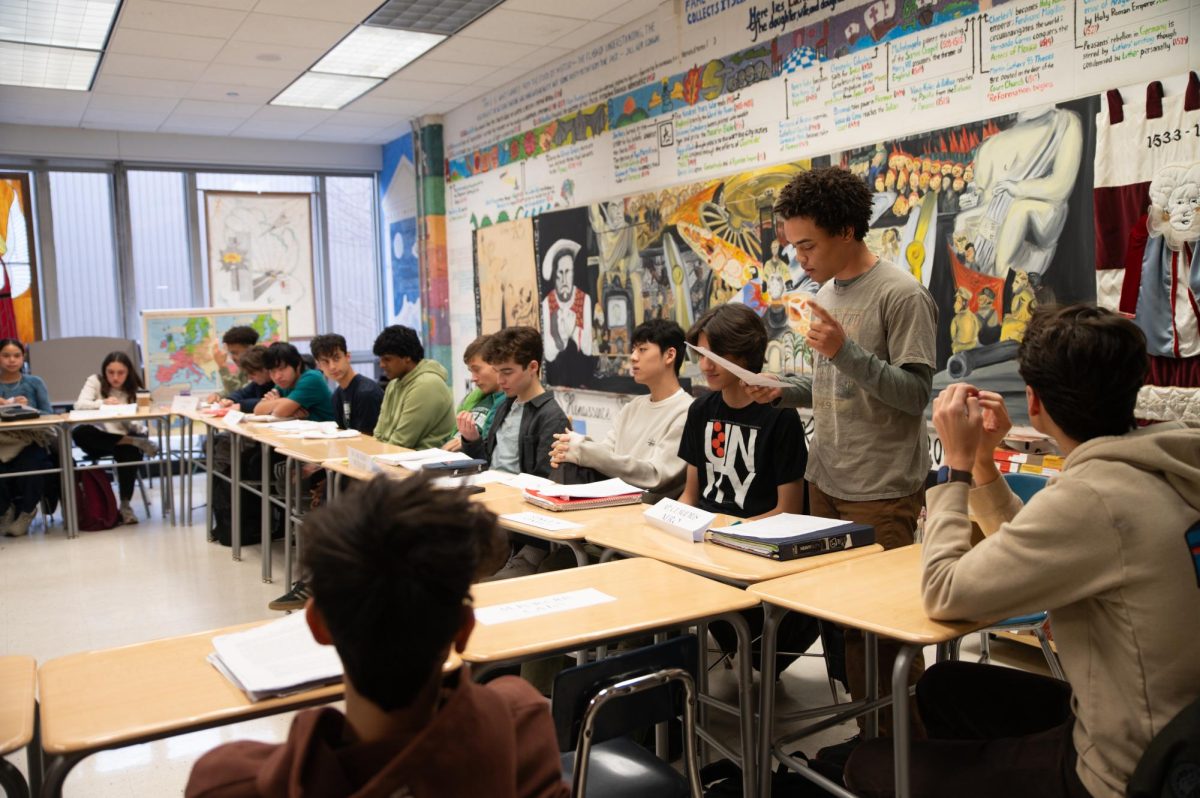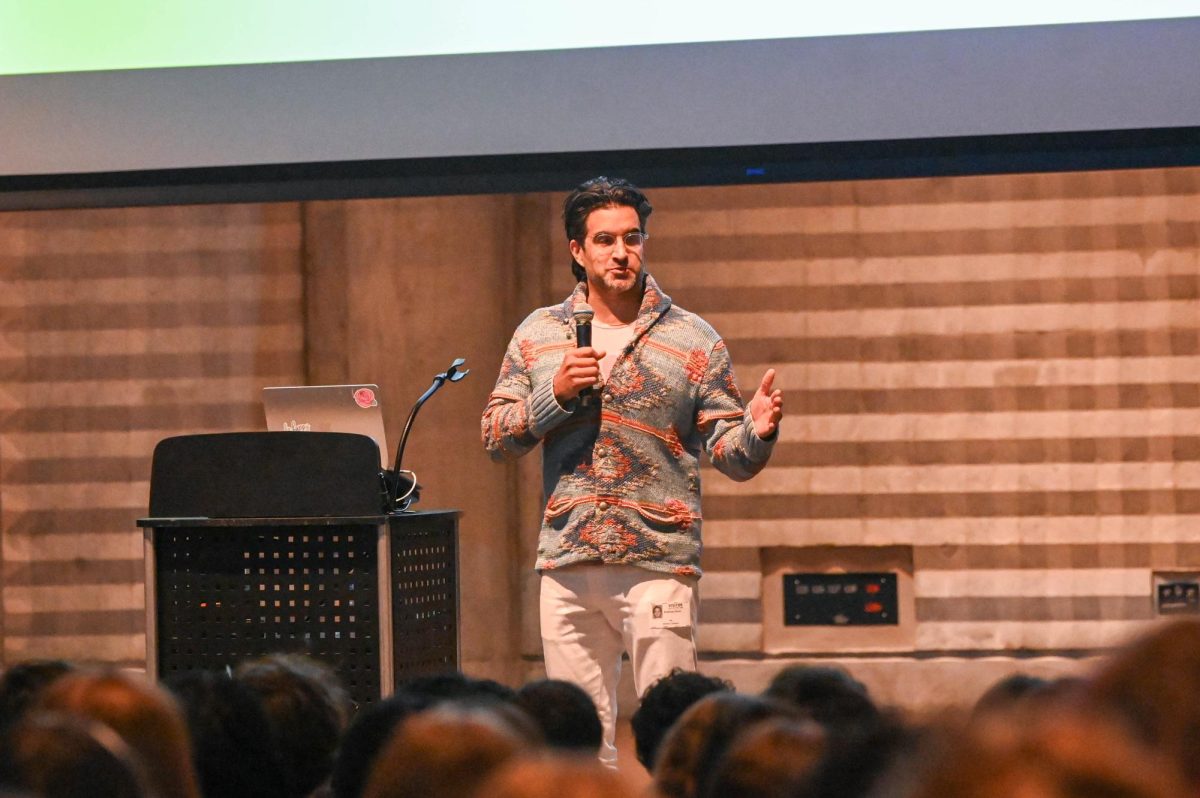As a whisper of scandal echoed through the Roman Senate, Marcus Claudius Marcellus stood accused of a crime against the people. The prosecution and the other senators sat debating his fate in a close mirror of the political drama that once defined ancient Rome.
In a dramatic reenactment of ancient politics, the 24 students in history teacher Gabriel Baker’s first semester AT War and Violence I class played the roles of Roman senators, each with their own personal goals and methods of achieving them. With shifting alliances and occasional betrayals, Dr. Baker’s classroom was transformed into a model of a Roman senate where a simple class assignment became a test of political strategy and moral judgment for students.
Senior Jeremiah Lesniak, who portrayed Marcus Claudius Marcellus, said that the moment of his trial was among the most memorable of the experience.
“I think that was a really fun moment for the class,” Jeremiah said, referring to his character’s accusation. “Well, maybe not as fun for the prosecution. But for me, it was fun because I won.”
For Jeremiah, participating in the simulation gave him a deeper understanding of the human side of Roman history, beyond the textbook events and dates.
“It reminded us that these were individual people acting for certain reasons that were personal to them,” Jeremiah said. “It’s not like Rome is its own entity. Rome is made up of a bunch of people making decisions for their own reasons.”
Jeremiah believes that the activity opened the door for a deeper conversation about political dynamics and power structures.“I think it offers a really interesting insight into coalition building and trying to address a, like, a personal agenda,” Jeremiah said, “which I think is not only applicable to Rome, but also our government today.”
One of the main things Dr. Baker wanted his students to understand from the simulation was the slippery slope that comes from focusing more on one’s personal goals than working with the rest of the senate as a unit. This, he believes, is how war breaks out.
“Our class did not manage the republic at all,” Dr. Baker said. “Like, they were totally focused on their individual goals. So, they’re not thinking about their constituents, their clients, et cetera, and by the end of the game, a mini civil war has broken out.”
Dr. Baker said he hopes his students come away from the simulation with a new understanding of the vulnerabilities and flaws within systems of government that to many would seem bulletproof.
“They get to see firsthand how we can get from a system that on paper seems really polished and seems to work really well,” Dr. Baker said, “to a place where it’s falling apart.”
Senior Chani Patterson said that the simulation’s reach extended even beyond Dr. Baker’s class, and that its intensity didn’t just deepen students’ understanding of Roman history but also created a vibrant and competitive atmosphere that fostered creativity and collaboration. For the students in AT War & Violence I, the late-night strategizing and constant plotting became just as memorable as the lessons themselves.
“It bridges the gap between history as it’s written on paper and the perspective of a modern-day student, making the content feel vivid and personal,” Chani said. “The Senate Simulation truly embodies what it means to have a hands-on learning experience.”






















































Joyce Baker • Feb 4, 2025 at 6:18 pm
And thank you to your dedication to the teaching profession. Your students and our country are the beneficiaries.
Joyce Baker • Feb 4, 2025 at 6:01 pm
Well done, Dr. Baker.